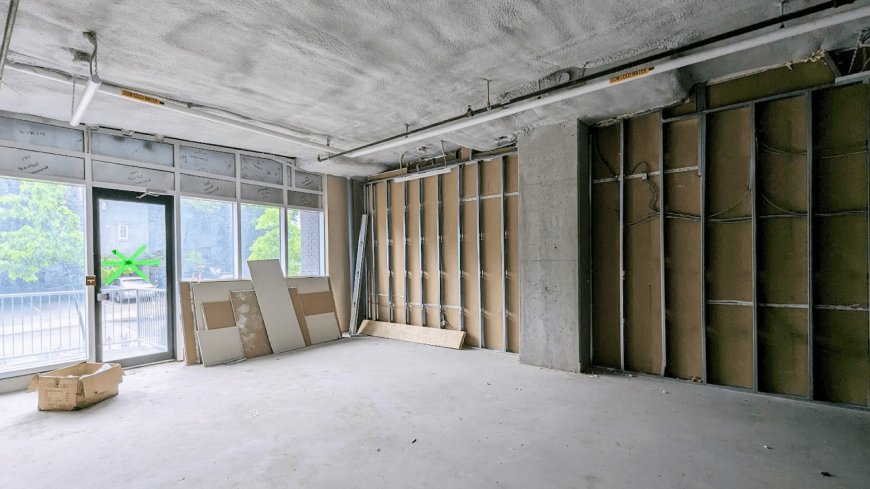Renovation vs Tenant Improvement: Which One Do You Need for Your Commercial Space?

Commercial spaces go through regular transformations—whether it's for rebranding, functionality, or tenant-specific upgrades. But many property owners and tenants still get confused between renovations and tenant improvements. While these terms are often used interchangeably, they refer to different scopes of work and serve different objectives. Understanding this distinction is crucial before you hire a contractor or sign a lease.
So, what’s the real difference between renovation and tenant improvement—and which one do you need?
Understanding Tenant Improvements
Tenant improvements (TIs) are changes made to a commercial space by a landlord or property owner, specifically to meet the needs of a new tenant. These changes are typically outlined and negotiated during lease agreements and are usually funded in part—or entirely—by the property owner through a tenant improvement allowance.
Common examples of tenant improvements include:
-
Partition wall adjustments
-
Electrical and plumbing upgrades
-
Interior finishes (flooring, painting, lighting)
-
ADA compliance features
-
Reception and office build-outs
Tenant improvements are customized, tenant-focused upgrades that add functionality to an otherwise generic space.
If you're a landlord preparing a space for a new occupant, or a business tenant negotiating your lease terms, understanding the scope of tenant improvements vs renovations can help avoid misunderstandings and budget overruns.
What Counts as a Renovation?
Renovations are broader changes that may apply to the entire building or a significant portion of it, not just a tenant's suite. Unlike tenant improvements, renovations are typically initiated by the property owner to modernize, repair, or reposition the asset.
Some typical renovation projects include:
-
Structural changes or roof replacement
-
Full building repainting
-
Exterior façade upgrades
-
Common area remodeling (lobbies, hallways, restrooms)
-
HVAC or elevator system upgrades
Renovations are usually part of long-term asset management or repositioning strategies. They're less about meeting individual tenant needs and more about increasing property value or complying with new regulations.
Key Differences Between Tenant Improvements and Renovations
| Criteria | Tenant Improvements | Renovations |
|---|---|---|
| Purpose | Customization for tenants | Modernization/maintenance |
| Scope | Specific units or suites | Building-wide |
| Who Benefits | Individual tenant | Entire property or multiple tenants |
| Who Pays | Often shared (TI allowance) | Property owner |
| Triggered By | Lease agreement | Capital improvement planning |
Knowing whether your project is a renovation or a tenant improvement can also determine which professionals to hire. For example, some commercial tenant improvement contractors specialize only in build-outs that follow leasing standards and tenant preferences.
Why This Distinction Matters for Landlords and Tenants
If you're a landlord, mislabeling the work can lead to misaligned budgets, contract disputes, or compliance issues. If you’re a tenant, it affects how you negotiate lease terms, what upgrades are your responsibility, and how you claim tax deductions.
It’s also important from a scheduling perspective. Tenant improvement services often need to align with a tenant’s move-in date, while renovations can be planned around longer timelines and larger budgets.
Apartment Renovations vs. Tenant Improvements in Multifamily Spaces
In multifamily housing, the line gets blurry. For example, apartment renovation contractors might handle both general upgrades (like plumbing replacements in all units) and tenant-specific customizations (like upgraded kitchens for premium renters). Understanding the purpose and funding source of the work will help you classify the project correctly.
Conclusion
Before breaking ground on any commercial or multifamily project, ask yourself this: Are you making the space better for everyone or customizing it for a specific tenant? That answer alone can help you decide whether you need a tenant improvement or a full-scale renovation.
By understanding the core difference between tenant improvements vs renovations, you’ll be in a better position to plan your next project, stay within budget, and choose the right contractors for the job.
What's Your Reaction?
 Like
0
Like
0
 Dislike
0
Dislike
0
 Love
0
Love
0
 Funny
0
Funny
0
 Angry
0
Angry
0
 Sad
0
Sad
0
 Wow
0
Wow
0








































